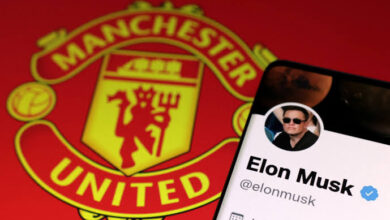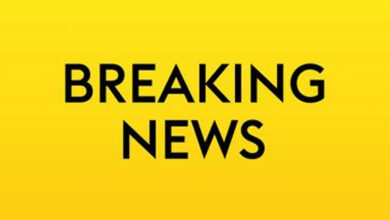Real Reason Behind Dan Ashworth’s Manchester United Exit

Dan Ashworth has departed his role as Manchester United’s sporting director after just five months, and reports suggest that Ruben Amorim’s appointment as manager may have played a significant role in his exit.
Manchester United paid a £3 million compensation fee to pry Ashworth away from Newcastle United this past summer. During his short stint, Ashworth was instrumental in the club’s summer transfer business, playing a key role in securing signings like Matthijs De Ligt, Manuel Ugarte, Leny Yoro, Noussair Mazraoui, and Joshua Zirkzee, all for a combined fee of around £200 million.
However, David Ornstein from The Athletic reported that Ashworth’s departure was finalized after a meeting with CEO Omar Berrada following United’s disappointing 3-2 loss to Nottingham Forest. According to the report, co-owner Sir Jim Ratcliffe was pivotal in the decision, with sources describing a tense situation regarding United’s summer transfer strategy. The official line from the club is that Ashworth and the board mutually agreed to part ways.
Interestingly, Ornstein highlighted that Ashworth’s name was absent from the announcement of Ruben Amorim’s appointment as manager. Ashworth had been quoted in the announcements for Erik ten Hag’s contract extension and every major summer signing, suggesting he may not have supported Amorim’s hiring.
Ratcliffe’s Role in Ashworth’s Departure
Sir Jim Ratcliffe, who has been increasingly hands-on with club decisions, reportedly disagreed with Ashworth’s approach to building the squad. Despite Ashworth’s efforts to strengthen the team, tensions over his methods seem to have been a critical factor in his dismissal.
Ashworth was expected to play a crucial role in reshaping Manchester United’s future. However, his exit raises questions about internal disagreements and the direction of the club under Ratcliffe’s leadership.
Dan Ashworth’s abrupt departure from his role as Manchester United’s sporting director has sparked significant debate about the internal dynamics at the club. After just five months in the position, Ashworth’s exit reportedly stems from disagreements over the club’s direction and key decisions, particularly surrounding Ruben Amorim’s appointment as manager.
### Ashworth’s Contributions
During his brief tenure, Ashworth oversaw an active transfer window, securing high-profile signings such as Matthijs De Ligt, Manuel Ugarte, Leny Yoro, Noussair Mazraoui, and Joshua Zirkzee for a combined fee of approximately £200 million. These acquisitions were seen as vital steps toward strengthening Erik ten Hag’s squad and addressing critical gaps.
### Tensions with Sir Jim Ratcliffe
Sir Jim Ratcliffe, a co-owner with increasing influence in day-to-day operations, reportedly played a pivotal role in Ashworth’s dismissal. Ratcliffe disagreed with Ashworth’s approach to building the squad, creating tension that culminated after a disappointing 3-2 defeat to Nottingham Forest. Reports suggest that Ashworth’s departure was finalized during a meeting with CEO Omar Berrada, with Ratcliffe strongly advocating for the change.
### Ruben Amorim’s Appointment
The absence of Ashworth’s name in the announcement of Ruben Amorim’s appointment as manager further highlights potential friction. Ashworth had been a visible figure in previous managerial announcements and transfer dealings, suggesting he may not have supported Amorim’s hiring. This omission, combined with reported disagreements over the club’s strategic direction, has raised questions about Ratcliffe’s leadership style and decision-making process.
### Implications for Manchester United
Ashworth was expected to play a central role in reshaping Manchester United’s future. His departure points to deeper issues within the club’s hierarchy, particularly around the balance of power and long-term planning under Ratcliffe’s stewardship. While Ashworth’s contributions during the transfer window have left a mark, his exit may signal challenges ahead for maintaining stability and achieving alignment among the club’s leadership.
This episode underscores the complex dynamics of managing a top football club and the potential impact of internal discord on its progress.








